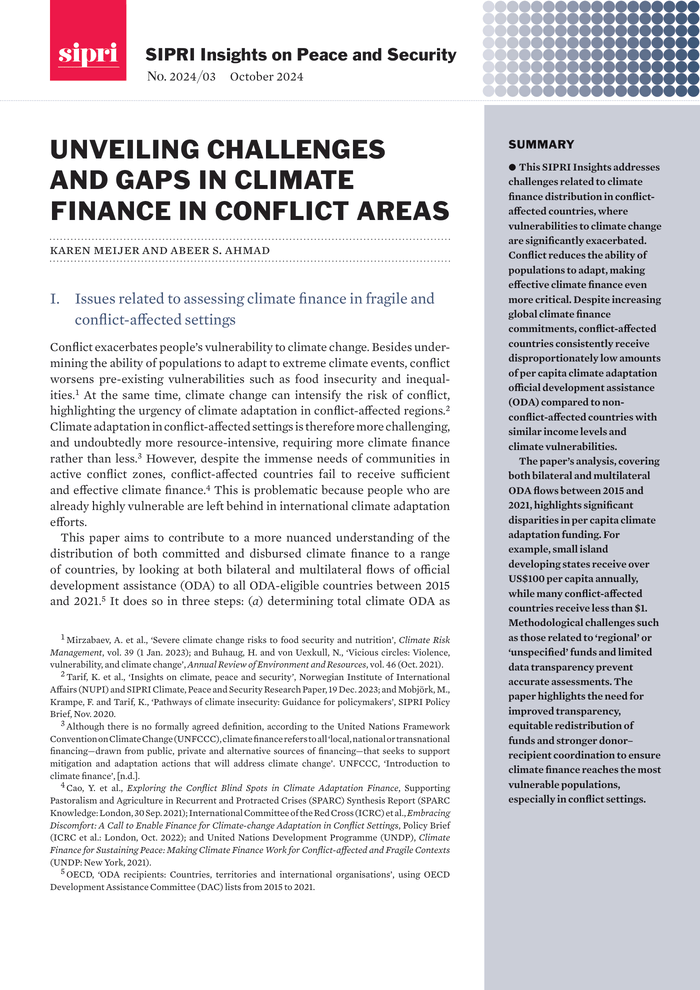attachment
This SIPRI Insights addresses challenges related to climate finance distribution in conflict-affected countries, where vulnerability to climate change is significantly exacerbated. Conflict reduces people’s ability to adapt, making effective climate financing even more important. Despite increasing global climate financing, conflict-affected countries consistently receive less funding than non-conflict-affected countries with similar income levels and climate vulnerabilities. Climate adaptation Official Development Assistance (ODA) per capita is disproportionately low.
This paper’s analysis covers both bilateral and multilateral ODA flows from 2015 to 2021 and highlights large disparities in per capita climate adaptation financing. For example, small island developing States receive more than US$100 per person per year, while many conflict-affected countries receive less than US$1. Methodological challenges and data transparency limitations, such as those related to “regional” or “unspecified” funds, hinder accurate assessments. The document emphasizes the need for increased transparency, fair redistribution of funds, and stronger collaboration between donors and recipients to ensure that climate finance reaches the most vulnerable, especially in conflict situations. are.
table of contents
I. Issues related to assessing climate finance in fragile and conflict-affected contexts
II. ODA commitments and total expenditures on climate change
III. Differences in climate adaptation ODA per capita: conflict-affected and non-conflict-affected countries
IV. Conclusion

